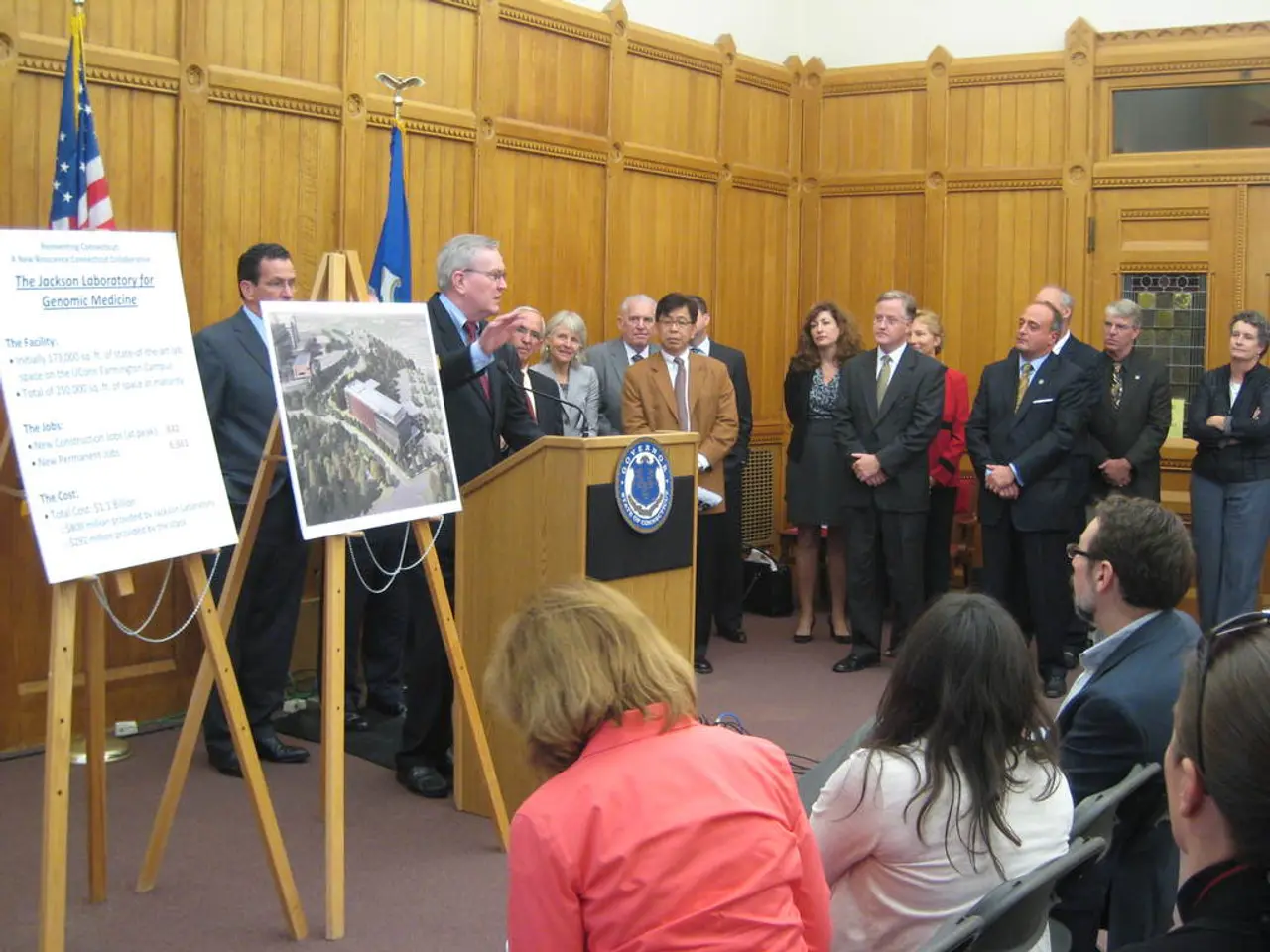Maintains Political Stability: Switzerland Continues to Function Democratically
The Swiss People's Party (SVP) has made a significant impact on the political landscape of Switzerland, adopting a nationalist and Eurosceptic stance that contests deeper integration with the European Union. This shift, marked by a strong emphasis on Swiss sovereignty and freedom, has been a key driver in the country's current political discourse.
The SVP's influence is visible in the public debate, particularly on trade and security issues. However, this position is being tested by recent economic pressures, such as the steep 39% U.S. tariffs on Swiss exports, which have sparked a crisis in Swiss trade and led to calls for collaborative defense and trade policies.
In response to these challenges, the Swiss government is seeking closer cooperation with European allies in defense and security. This shift, partly driven by external pressures, contrasts with the SVP's preferred isolationist stance.
The political landscape in Switzerland is currently undergoing a transformation, according to many commentators. While the SVP has won a significant number of seats in parliament, securing nearly a third of the seats, the right and conservative camp remains roughly equal in strength to the left.
The SVP's success is not solely attributed to one person, a lot of money, or riots, as some may suggest. Political scientist Georg Lutz suggests that the SVP's success is a correction of a previous leftward trend. However, Lutz also states that "nothing much has happened" in terms of a significant shift.
The SVP is expected to have reached "the upper end of the flagpole," meaning further growth may be limited. The political balance is shifting, with a possible government cooperation "with a right-wing accent."
Despite the SVP's influence, Switzerland is expected to continue to be governed as before after December 12, when the parliament elects the new government. The liberal Free Democrats (FDP) and the Social Democrats (SP) will continue to provide two councilors in the government, while the Christian Democrats (CVP) will have one seat.
The Social Democrats (SP) suffered losses in the parliamentary elections, but the Greens gained significantly. The debate on a possible EU membership is temporarily off the table due to Blocher's election victory.
Concerns about crime and the alleged danger posed by foreigners are present in most regions, and these topics, often unpleasant, are a significant factor in moving the people to continue to strengthen the SVP. However, the party failed to reach its goal of obtaining 100,000 more votes than in 2003.
In summary, the Swiss People's Party is driving a nationalist, anti-EU agenda, emphasizing Swiss sovereignty and independently defined freedom. Switzerland faces economic pressure from steep U.S. tariffs on exports, challenging the nation’s go-it-alone trade approach and increasing calls for collaborative defense and trade policies. The government is seeking closer cooperation with European allies in defense and security, reflecting a shift partly in response to external pressures, which contrasts with the SVP's preferred isolationist stance. This dynamic is creating a complex political environment where the SVP’s impact is strong rhetorically and politically but is being tested by practical economic and security realities shaping Swiss government policy.
The Swiss People's Party's policy-and-legislation, steeped in nationalism and Euroscepticism, has notably influenced the ongoing debates on trade and security issues in Switzerland, following their stance on Swiss sovereignty. The party's political influence contrasts with the Swiss government's recent endeavors for closer cooperation with European allies on defense and trade policies, a move mainly catering to external pressures such as the steep U.S. tariffs on Swiss exports.








